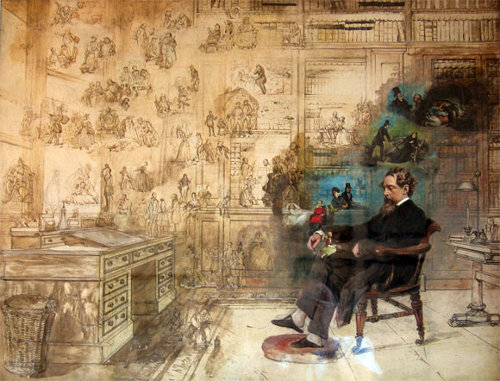Here, perhaps, one gets a glimpse of Dickens’s secret imaginative background. What did he think of as the most desirable way to live? When Martin Chuzzlewit had made it up with his uncle, when Nicholas Nickleby had married money, when John Harman had been enriched by Boffin what did they do? The answer evidently is that they did nothing... That is the spirit in which most of Dickens’s books end—a sort of radiant idleness. Where he appears to disapprove of young men who do not work (Harthouse, Harry Gowan, Richard Carstone, Wrayburn before his reformation) it is because they are cynical and immoral or because they are a burden on somebody else; if you are ‘good’, and also self-supporting, there is no reason why you should not spend fifty years in simply drawing your dividends. Home life is always enough. And, after all, it was the general assumption of his age. The ‘genteel sufficiency’, the ‘competence’, the ‘gentleman of independent means’ (or ‘in easy circumstances’)—the very phrases tell one all about the strange, empty dream of the eighteenth- and nineteenth- century middle bourgeoisie. It was a dream of complete idleness."


